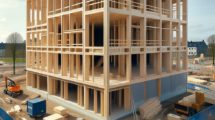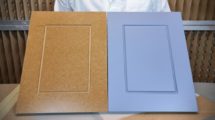There's nothing more enjoyable after a hectic week of daily worries and stress than recharging your batteries in the great outdoors. Living in the city increasingly pushes us to seek out places for short weekend getaways in the heart of nature, in the mountains or by the sea, especially during the hot summer months.
Building a holiday homes may at first seem like a reckless gesture. It's a big investment for a place you visit a few times a year. However, more and more people are choosing to build or buy a holiday home in a variety of picturesque locations.

Why a holiday home
Holiday home should be seen primarily as a long-term investment. While the buying and/or building process may seem like a hassle at first, over time the investment pays for itself. Building a holiday home in an area you visit regularly anyway may be the best idea.
In addition to saving money on accommodation, the real estate market trend for most mountain and seaside areas is on the rise. An investment now may be the best idea for a secure passive income if you rent out the property when not in use.
At the same time, the holiday home can also be used by other family members or colleagues/employees. This makes it a good way of cementing relationships with others.
And, why not, the holiday home can become a place of retreat in various special situations, such as during the last two years when staying at home has become the norm.

What we build our holiday home from
Let's imagine we've come to the conclusion that a holiday home is the best investment we can make. Naturally, the next question is what do we build our holiday home out of?
Today there are a multitude of options for such a construction, varied options, each with its advantages and disadvantages. All need to be analysed in detail in order to make the right decision on all levels.
Some tips for choosing the right building system
♦ Climate and environmental awareness
The house should be designed taking into account local environmental conditions. For example, houses with a hipped roof are more suitable in mountainous environments than those with a flat roof. This will especially lead to lower house maintenance costs over time.
♦ Choosing suitable finishes
Even if your first instinct when building a holiday home is to try to limit your expenses as much as possible by choosing cheaper finishes, this can lead to higher maintenance costs down the road. In construction, quality is mostly reflected in price.
♦ Talk to an architect
Whatever type of home you choose, expert advice is always welcome and can help you make informed decisions. Despite appearances, an architect's opinion can help you save quite a bit during construction, but especially afterwards.
♦ Don't choose the cheapest building system, even if it is a holiday home
Often the cheapest option leads to higher costs down the line, as with finishing. At the same time, the holiday home is a good long-term investment that can increase in market value over time, making it a profitable investment.
♦ Access to utilities
While a cottage in the middle of the woods may seem like a very romantic and exciting choice, having the main utilities can be a necessary added convenience. Even though there are various possibilities for self-catering nowadays, having electricity or water supply can make the difference between comfort and hassle.

In future posts I will detail the most currently used building systems for constructing a holiday home, looking at the advantages and disadvantages of each:
- Prefabricated panel houses - prefabricated houses or modular houses
- Houses made of metal containers
- Houses with wooden structure
- Houses with metal structure
- Restoration/rebuilding of an old house
If you have any other ideas feel free to leave them in the comments.



























Add comment